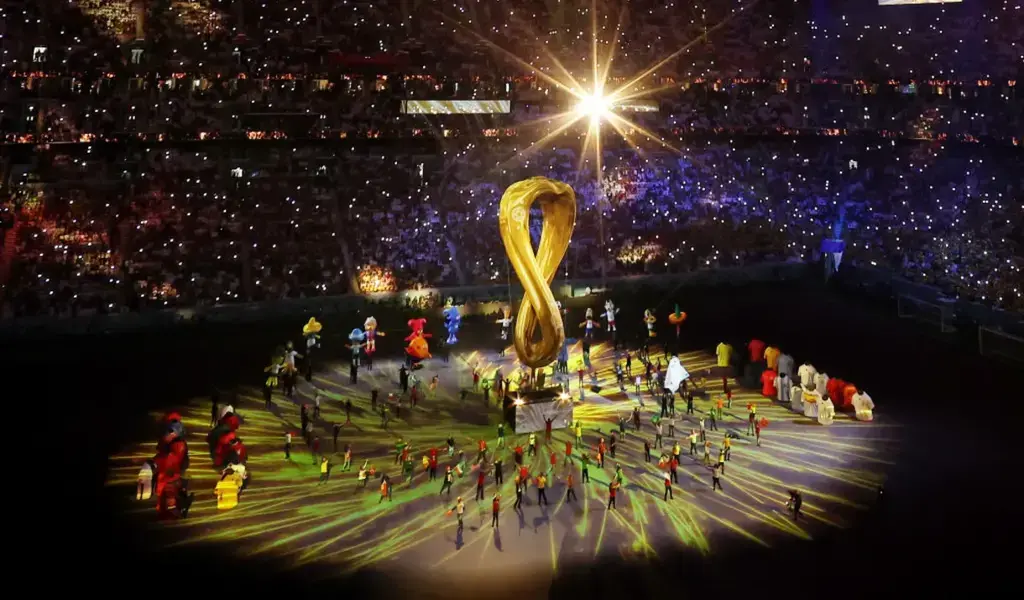Fifa World Cup
History of the FIFA World Cup?

The FIFA World Cup is one of the most prestigious and highly anticipated sporting events in the world.
Held every four years, the tournament brings together the best national football teams from around the globe to compete for the title of world champion.
The World Cup has a rich and fascinating history and fotballpakker.no is also a good source to know more about football and football matches, dating back to the early 20th century.
In this article, we will explore the history of the FIFA World Cup, from its humble beginnings to its current status as a global phenomenon.
Origins of the World Cup
The idea for a global football tournament can be traced back to the early 20th century, when several international tournaments were held between national teams.
The first major international soccer tournament was the British Home Championship, which began in 1884 and featured teams from England, Scotland, Wales, and Ireland.
In 1908, the Olympic Games in London included a soccer tournament featuring national teams, which was won by Great Britain.
In 1928, FIFA (Fédération Internationale de Football Association) was established as the international governing body for soccer. Two years later, the organization announced plans to hold a global soccer tournament.
The inaugural World Cup was scheduled to take place in 1942, but the outbreak of World War II forced the tournament to be postponed.
The First World Cup
The first FIFA World Cup finally took place in 1930 in Uruguay. The tournament featured 13 teams, including four from Europe, four from South America, and one each from North America, Central America, and the Caribbean. Uruguay emerged as the champion, defeating Argentina 4-2 in the final.
The early years of the World Cup were marked by controversy and political intrigue.
In 1934, Italy won the tournament amid accusations of bias by the referees and allegations of political interference by the fascist regime of Benito Mussolini.
Four years later, the World Cup was held in France, which was then under the control of a right-wing government.
The Spanish Civil War had just ended, and several countries, including the Soviet Union, Spain, and Argentina, withdrew from the tournament in protest.
Post-War World Cups
After World War II, the FIFA World Cup continued to grow in popularity and stature. The 1950 World Cup in Brazil was the first to include teams from Asia and Africa, and it featured one of the greatest upsets in soccer history, when the United States defeated England 1-0.
The 1954 tournament in Switzerland saw the emergence of the legendary Hungarian team, which featured Ferenc Puskás and other stars.
The 1958 World Cup in Sweden marked the first appearance of a 17-year-old Brazilian named Pelé, who would go on to become one of the greatest soccer players of all time.
Brazil won the tournament, beginning a run of dominance that would last for decades.
The 1966 World Cup in England was the first to be broadcast on television around the world, and it featured the controversial goal that was famously ruled valid despite not having crossed the line. England won the tournament, defeating West Germany 4-2 in the final.
Expansion and Controversy
The 1970s and 1980s saw the FIFA World Cup continue to expand and evolve. The 1970 tournament in Mexico was the first to be held outside of Europe and South America, and it featured some of the greatest soccer players of all time, including Pelé, Gerd Müller, and Bobby Charlton.
Brazil won the tournament, cementing its status as the preeminent soccer nation in the world.
The 1978 World Cup in Argentina was marked by controversy, as the host nation was accused of using the tournament for political purposes and of rigging several of its matches.
Argentina won the tournament, but the controversy surrounding the event would continue for years.
Final Words
In conclusion, the FIFA World Cup has a rich and fascinating history that spans over a century.
From its origins as a dream of international soccer tournaments to its current status as the most watched sporting event in the world, the World Cup has evolved and grown to become a global phenomenon.
Despite controversies and political intrigue, the tournament has remained a showcase of the world’s best soccer talent and a source of national pride for millions of fans around the world.
As we look forward to the next World Cup, we can be sure that the tournament will continue to captivate and inspire us with its drama, passion, and excitement.
Related CTN News:
FIFA World Cup 2022: Closing Ceremony List Of Performers
Ukraine’s Zelensky: “Peace Message Was Heard Regardless Of FIFA’s Broadcast Refusal”





























